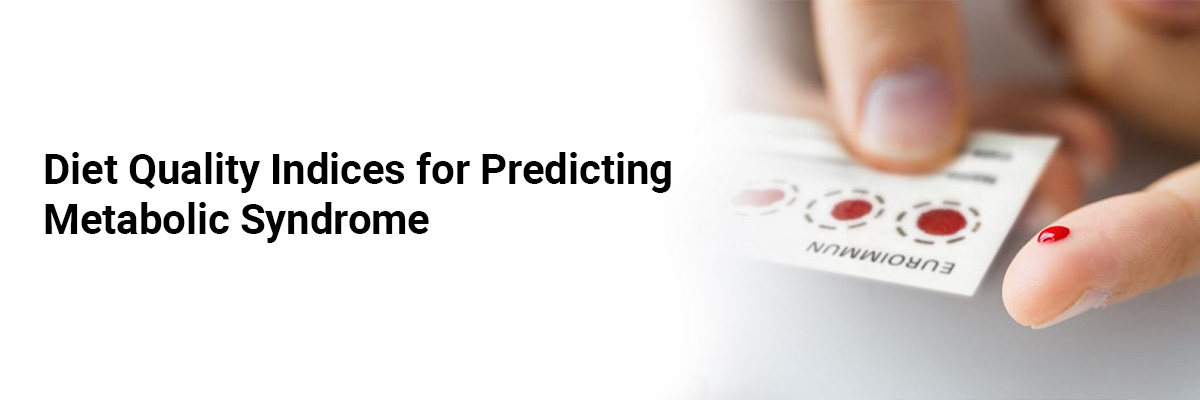
Diet quality indices for predicting metabolic syndrome
Metabolic syndrome (MetS) encompasses metabolic disruptions, such as hypertension and central obesity, which stem from genetic, metabolic, environmental, and dietary influences. Given the role of diet and lifestyle as risk factors, identifying a diet quality index that best predicts MetS is essential.
A new study compared various diet quality indices to find the most effective predictor of MetS.
This study entailed a cross-sectional analysis of 5,206 participants aged 35-70 years from the Prospective Epidemiological Research Study in Iran (PERSIAN) cohort. A validated 134-item semi-quantitative food frequency questionnaire (FFQ) was utilized to capture one-year dietary intake. The questionnaire assessed adherence to five diet indices – Dietary Approaches to Stop Hypertension (DASH), Mediterranean, MIND (Mediterranean-DASH Intervention for Neurodegenerative Delay), Dietary Inflammatory Index (DII), and Diet Quality Indices (DQI). Correlation and logistic regression analyses identified the strongest predictor for MetS.
The results showed that DASH, Mediterranean, MIND, DII, and DQI scores were significantly associated with MetS odds. Higher adherence to the DASH, Mediterranean, and MIND diets lowered MetS odds by 5.4%, 14.5%, and 15.6%, respectively. The DII score, however, increased MetS odds by 22%, showing a notable link to inflammatory dietary patterns. DASH scores were tied to favorable MetS biomarker risks, while DII scores were the strongest predictors for MetS––suggesting the impact of dietary inflammation.
The findings underscore that the DASH diet score is most associated with favorable biomarker risks, while the DII score is linked to MetS, emphasizing dietary inflammation's role. Therefore, incorporating DII in public health for targeted MetS interventions can be beneficial. Further clinical trials on diverse populations are recommended to clarify cause-effect relationships.
Source: Pashaei KHA, Namkhah Z, Sobhani SR. Diabetol Metab Syndr. 2024;16(1):253. Published 2024 Oct 28. doi:10.1186/s13098-024-01490-x













Please login to comment on this article